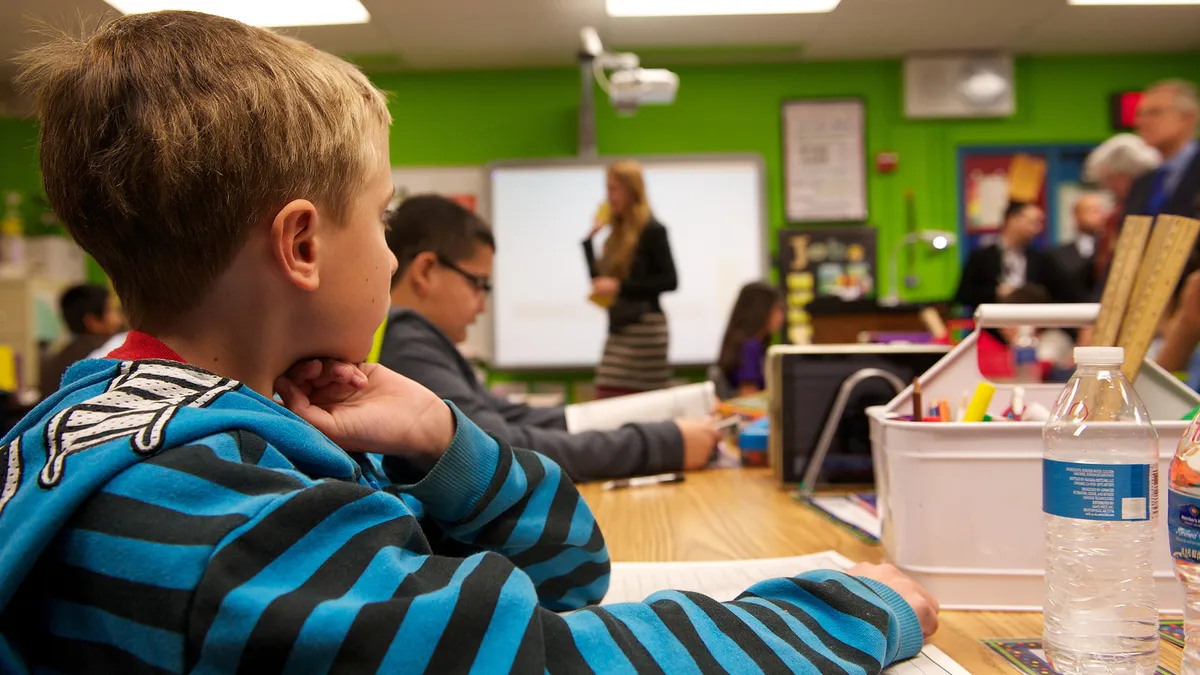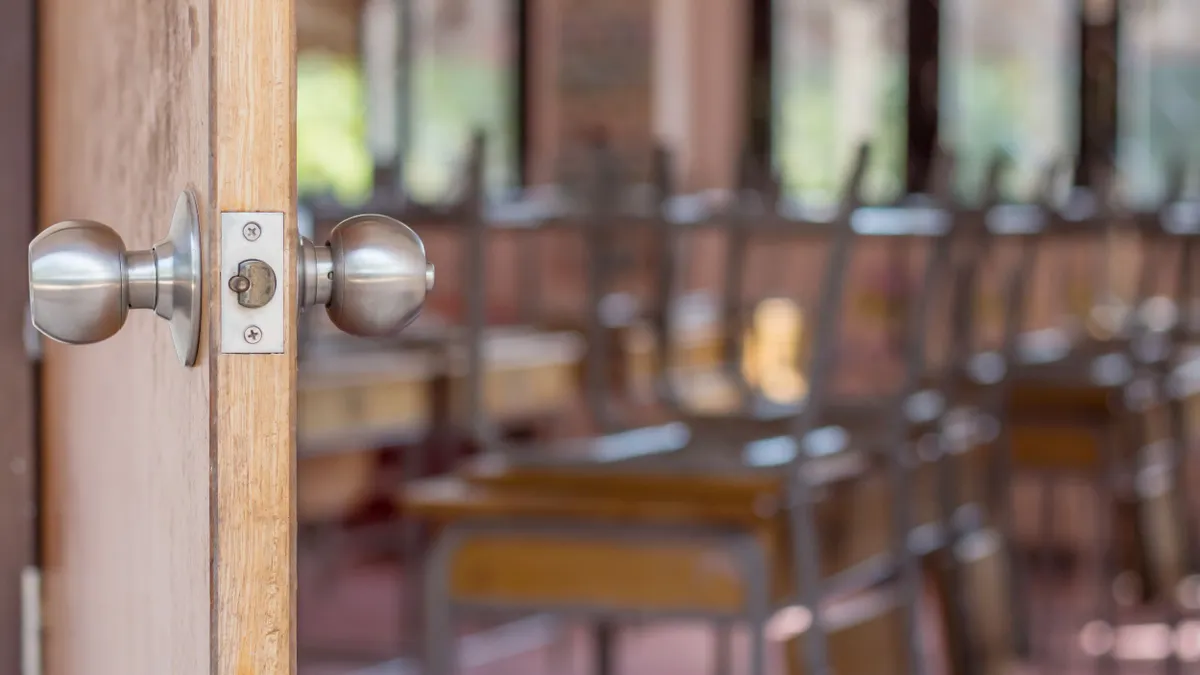Dive Brief:
- Indiana is considering new high school graduation requirements that aim to “raise the bar” and make learning more challenging, but some see the possibility for the higher expectations to leave special ed students, like those with Down syndrome, unable to finish high school.
- Unlike some states like Minnesota and Idaho, where special ed students are exempt from certain requirements, Indiana’s requirements for special ed students are the same as those for the general student population, NPR reports.
- Indiana Education Commissioner Jason Bearce, who supports the new requirements, says they would allow for more technical education and workforce experience, meaning special ed students could benefit by becoming more prepared to enter the workforce.
Dive Insight:
NPR reports that National Center for Education Statistics show cognitive disabilities impacting around 13% of students in special education programs. “The majority have learning disabilities or speech or language impairments and are able to meet graduation requirements.”
But therein lies the issue: What should be done for the 13% of special ed students who are indeed cognitively impaired? Experts say that it’s best for students with disabilities to be mixed in with the general population, since a smaller percentage are cognitively challenged.
The new, harder requirements are meant to improve student performance. Yet gauging improvement is tricky: The Indiana State Board of Education has already delayed setting passing rates for the standardized tests students took in the spring of 2015 as it struggles to ascertain what's fair.












